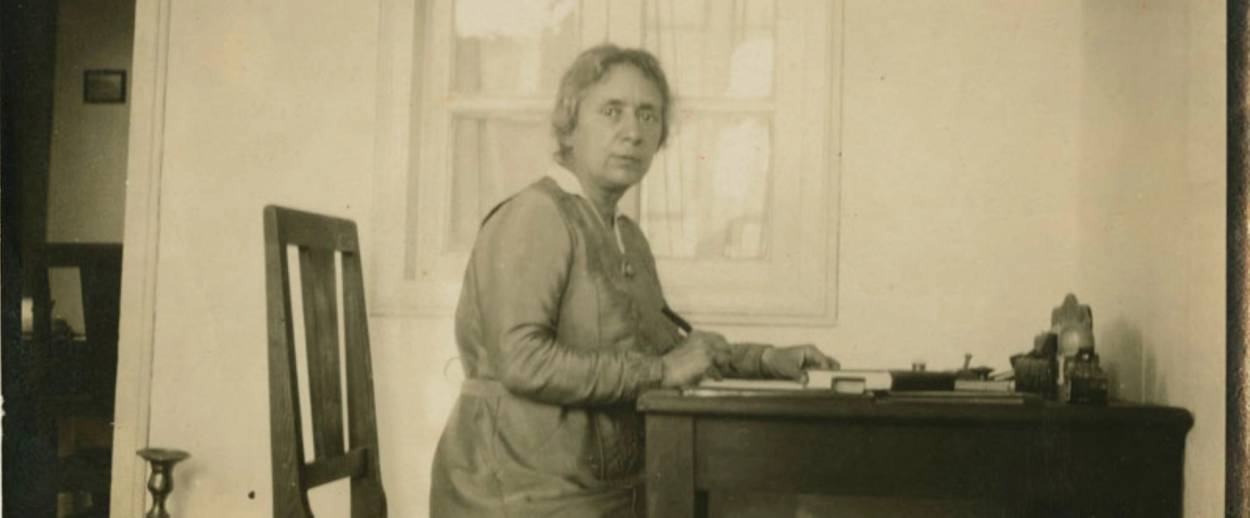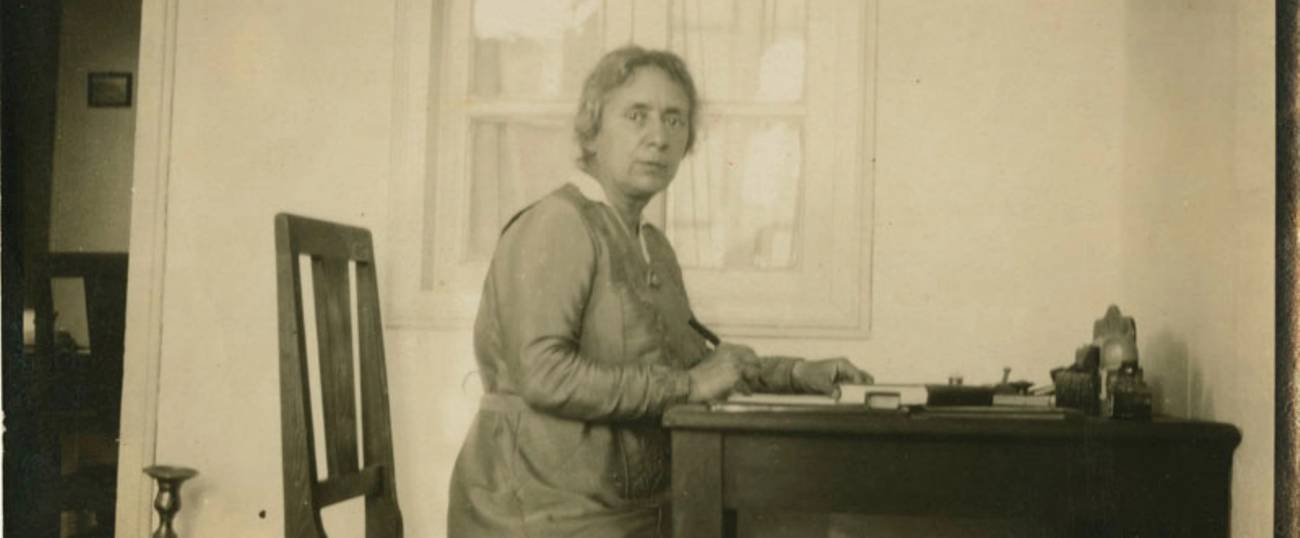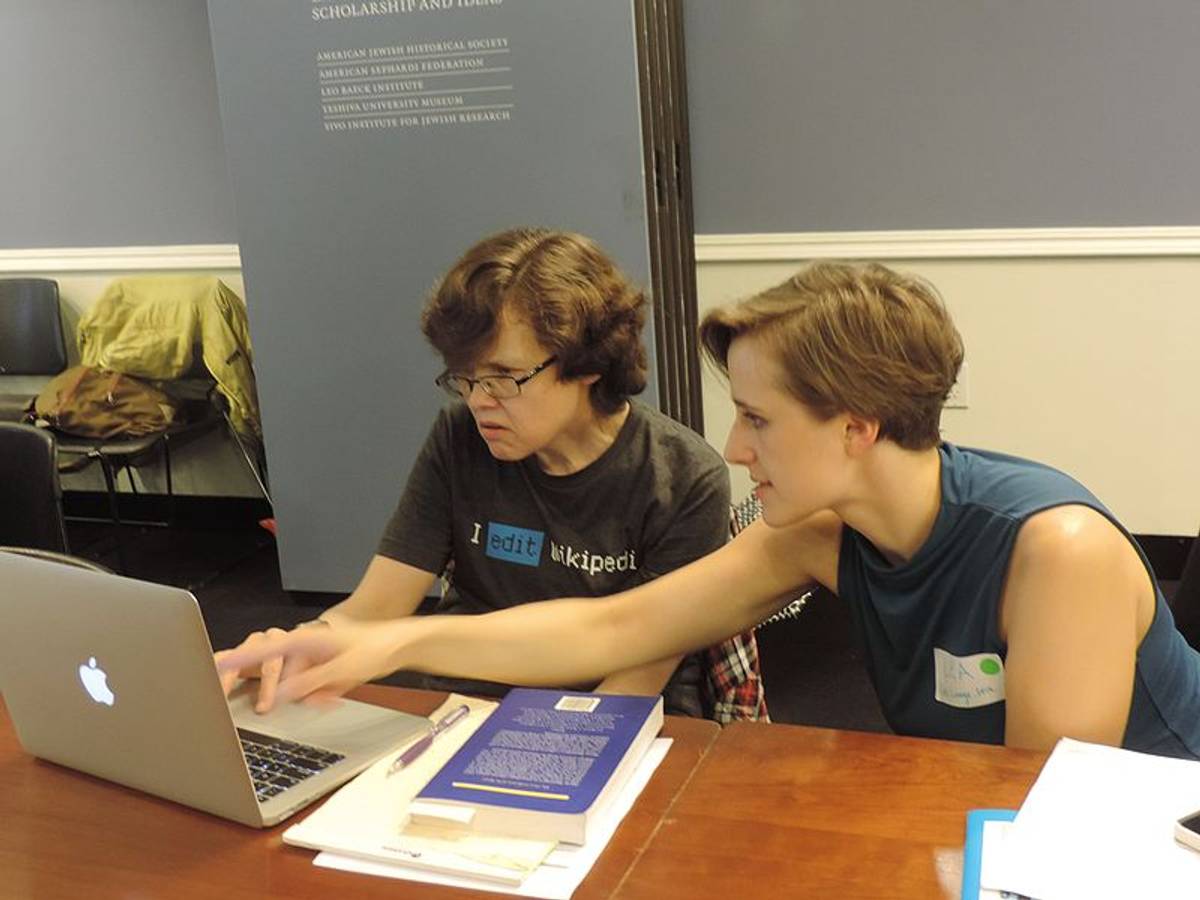Preserving Jewish Women’s History on Wikipedia
About 20 people gathered at the Center for Jewish History in New York on Sunday to create, correct, and expand upon the Wikipedia entires of important female Jewish figures throughout history




Irma Lindheim was the first woman in the U.S. to attend a Jewish seminary. In 1948, her signature appeared on a letter condemning Menachem Begin as the “latest manifestation of fascism,” alongside the autographs of Albert Einstein and Hannah Arendt, among others. Israeli media called her the “grandmother of the kibbutz.” But you’d never find this on her Wikipedia page—the Internet’s encyclopedic take on fact. Over the weekend, I made sure that changed.
Last Sunday, in a bright conference room tucked away in the Center for Jewish History, a group of self-proclaimed Wikipedeans—both amateurs (like myself) and seasoned professionals—gathered to set the record straight. Organized by Lea Lange, Digital Collections Coordinator at the Center for Jewish History, we gathered for the third annual Wikipedia Edit-a-thon focused on creating, editing, and adding to Wikipedia webpages for historically significant Jewish women.
Following a brief lesson on the philosophical pillars of Wikipedia, Lange instructed the group—ranging in skill from HTML fluent users to knuckle-dragging Luddites such as myself—on the basics of Wikipedia editorship. From there, we were off to the races, rewording and summarizing print encyclopedias for the site; for hours, we typed furiously, chipping away at a mountain of misinformation while building up a better-sourced one. I focused on Lindheim; others got swept up in the lives of Henrietta Szold, Barbara Ochs Adler, and Fradl Shtok, among many others. In total, about 20 Wikipedeans helped in the effort.

A few years ago, Lange and her “robust little group of staff members” started taking lunches to update and create pages that they found lacking or deserving of creation. Soon, recently processed collections acquired by the center’s partner organizations would prompt a rush to Wikipedia, to see if recently unearthed documents would be helpful to the articles the staff had noticed. The idea of an edit-a-thon got batted around, and in 2014, CJH hosted its first one, also focused on Jewish women, before moving onto Soviet Jewry in 2015.
Part of the reason for the focus of the event was a perceived gender bias in the Wikipedia community; studies have shown that an overwhelming majority of edits are made by men, who make up about 75 percent of all editors, and that the number of biography pages for women are hugely outnumbered by those for men. Though Lange herself hasn’t faced any trouble while editing, many others have found the community to be hostile towards female editors.
Edit-a-thons have grown in popularity in recent years (Lange recalls close to 200 attendees at MoMA for an Art+Feminism edit-a-thon), often coordinating with Wikipedeans across the globe. As archivists like Lange have come to reckon with the unprecedented amount of information now available at their fingertips, Wikipedia, the bane of “traditional” teachers everywhere, has become a hybrid battleground/community for those interested in “making the sum of human knowledge available,” said Lange.
For Lange, the motivations for these concerted editing efforts goes beyond a desire to better representation for Jewish women in the largest encyclopedia ever created. As an archivist, she sees her job as not only providing as much information as she can to as broad a swath of people as possible, but now, in the 21st century, as also to assist those still “learning information literacy.” Miriam Haier, Director of Public Programs at the center, wanted those who were interested in the archives to “take ownership of the resources” and involve themselves to a greater degree, if they so chose.
Going forward, Lange wants to see Wikipedeans (who are all volunteers) continue making Wikipedia “a much more welcoming place” than it used to be. A remarkably simple editing tool has created a much more accessible editing process, no longer requiring users to have any coding experience to pitch in.
In the meantime, Irma Lindheim’s Wikipedia page has been updated (by yours truly), and awaits further edits. So, if you find a misplaced comma in the new section of her Hadassah presidency, feel free to let me know. Everything else is (Internet) history.
Jesse Bernstein is a former Intern at Tablet.